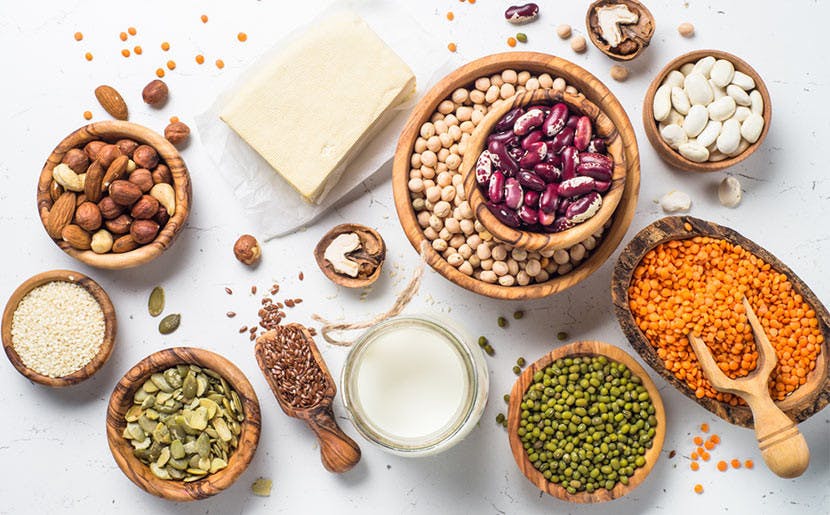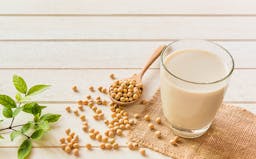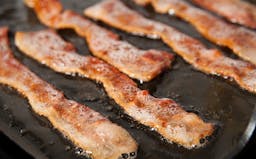Vegan Protein: Are You Getting Enough?
Article by:
Amazing Discoveries™ |
10 min read
If you’ve ever considered plant-based nutrition, you’ve likely thought about how you’d replace the main nutrient supplied by meat - protein. Adequate protein in the diet is essential for good health. So it’s not surprising that people have questions about protein when it comes to vegan or plant-based diets.
What’s the truth about protein in a plant-based diet?
Are you concerned that you won’t get enough protein from plant-based sources? Or, on the other hand, have you heard there’s no need for concern because there’s protein in everything and getting enough protein will just happen? The idea that plants can never supply enough protein, and the opposite opinion, that adequate protein will just appear on your plant-based plate without any forethought or planning are both prevalent today. Is it any wonder so many are confused about the protein needs of those on a plant-based diet?
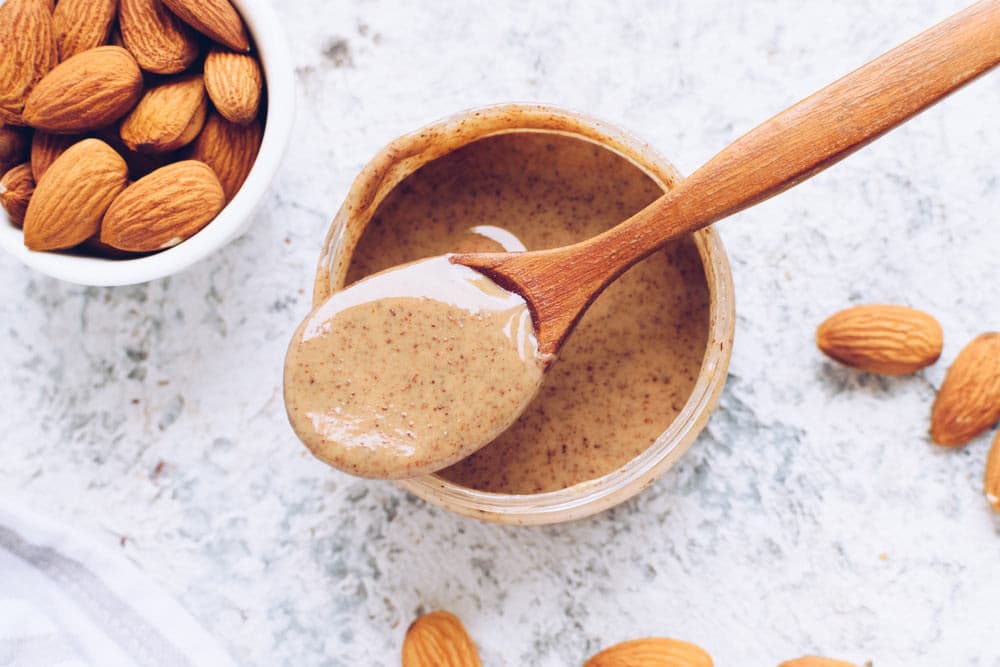
Let’s take a closer look at protein. The body uses 21 amino acids to make all the proteins it needs for normal growth and function. Nine of these are “essential,” meaning the body can’t manufacture them but depends upon food to supply them.
The human body is comprised of about 20% protein, more than half of which is in muscle tissue. While it’s true that the body was designed to burn carbohydrate as its fuel, and not protein, it’s also true that a steady supply of protein is needed daily just for the body to function properly because the body has no way of storing amino acids, the building blocks of protein.
What protein does in the body
Some of the functions that protein serves in the body include:
- Growth, repair, and maintenance of tissues;
- Production of enzymes and hormones which regulate almost all important body functions;
- Regulation of the body’s fluid balance;
- Regulation of the body’s acid-base balance; and
- Formation of antibodies, the body’s first line of defense against disease.
It’s estimated that 330 billion cells are replaced daily.1 Some of the amino acids can be recycled from the breakdown of old cells, but dietary protein is still needed for the creation of new cells. Whenever you cut yourself, get a bruise, or injure your body in any way, protein is needed for repairs.
At every meal, your body makes enzymes for digestion. More than 50 different hormones send chemical signals throughout your body to regulate myriad bodily processes. Every organ and cell in your body is dependent upon a precisely regulated sodium-to-water and acid-base balance in the blood; and under threat of foreign invaders, your immune system responds by producing antibodies. Each one of these tasks requires sufficient amounts of protein. Without adequate daily supplies of protein, our bodies simply cannot function optimally. Adequate protein is essential.
How much protein do I need?
But how much protein is necessary? And can a plant-based diet supply enough protein with the proper balance of amino acids? Will plant foods supply adequate protein without any thought or planning on your part?
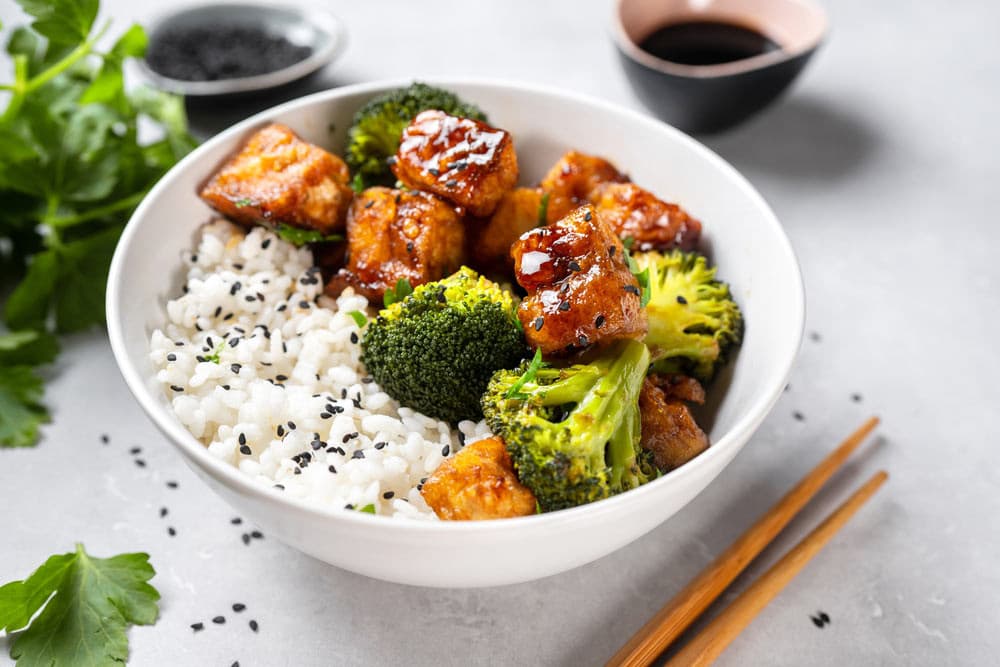
It’s estimated that an average sedentary adult needs 0.8 grams of protein per kilogram (or 0.36 grams per pound) of body weight daily just to prevent deficiency.2 That means that a woman weighing 135 pounds (61.24 kg) would need 49 grams of protein daily. A man weighing 175 pounds (79.38 kg) would need 63 grams of protein to meet his minimum requirements each day. Would that be hard to do on a plant-based diet? Is broccoli just as good as steak at supplying the body’s protein needs, as some would have you believe?
It’s a fact that all plant foods contain protein. But it’s wrong to think that you can get as much protein from a cup of broccoli as you would from a steak, though other plant sources compare more favorably. The reason some might believe that broccoli is as good a source for protein as steak is that nutrition information can be misleading.
Consider this chart which shows protein content in grams for 100 calories of various foods.
|
Foods |
Protein in Grams/100 calories |
| Oatmeal | 3.3 |
| Almonds |
3.5 |
| Tofu | 9 |
| Black beans | 5.8 |
| Broccoli | 8.4 |
| Soy beans | 8.8 |
| Steak | 2.6 |
| Chicken | 17.4 |
| Spirulina | 19.4 |
Here we see that a 100-calorie portion of broccoli has 8.4 grams of protein compared to a 100-calorie portion of steak, which has only 2.6 grams of protein. This comparison makes it appear that broccoli is a better source of protein than steak. According to this chart, spirulina is the best source of protein. A 100-calorie portion has 19.4 grams of protein!
The problem is, portioning food by calorie count is unrealistic. A 100-calorie portion of broccoli is about four cups of chopped broccoli. A 100-calorie portion of spirulina is five teaspoons. Few people would want to eat four cups of chopped broccoli or five teaspoons of spirulina, and then still fall short of protein requirements for the day anyway.
Charts that give the amount of protein in a cup of food can be equally as confusing. A cup of spirulina has 64 grams of protein, but nobody will sit down and eat a cup of spirulina. You might eat a cup of broccoli and if you did, you’d get just 2.6 grams of protein, compared to 40 grams from a cup of steak. This comparison makes more sense because for broccoli and steak, a one-cup serving size more closely approaches typical serving sizes for these foods. And that brings us to food comparisons based on typical serving sizes.
The most realistic way to assess foods for protein value is to compare them by typical serving size, that is, the amount of a food item that’s normally eaten by people.
Here is a chart that shows typical serving sizes of various foods and how much protein is in each serving.
| Foods | Recommended Serving Size | Protein in Grams |
| Spirulina | 3 grams | 1.7 |
| Broccoli | 1 cup | 2.6 |
| Oatmeal | 1/2 cup | 5.3 |
| Almonds | 1/4 cup | 6 |
| Black beans | 1/4 cup | 12.8 |
| Soy beans | 1/4 cup | 17.9 |
| Tofu | 3/4 cup | 19.9 |
| Steak | 3 oz | 25.4 |
| Chicken | 3 oz | 26.3 |
This comparison shows that a three-ounce serving of steak will provide 25.4 grams of protein, but a one-cup serving of broccoli gives only 2.6 grams. It’s clear from this chart that broccoli is a poor source of protein after all, but black beans are a better source. It would be easy to double the typical serving size and eat half-a-cup of black beans and exceed the amount of protein from a three-ounce steak.
This kind of comparison makes meal planning easier because you can begin to think in terms of substitutions. Instead of a three-ounce-steak to meet your protein requirements at one meal, you could have a bowl of black bean chili and more than equal the amount of protein from the steak.
But it should be clear from the information presented here that getting adequate amounts of protein from plant sources won’t just happen without some planning. High protein sources like legumes, nuts, and seeds must be a daily part of your diet.
Problems with Too Much Protein or Not Enough
Most Americans eat twice as much protein as they need.3 And that’s a problem because, as was already pointed out, the body cannot store amino acids. What does the body do with extra protein? It’s excreted via the kidneys. Excess protein from animal sources can lead to bone fracture,4 heart disease,5 and kidney problems.
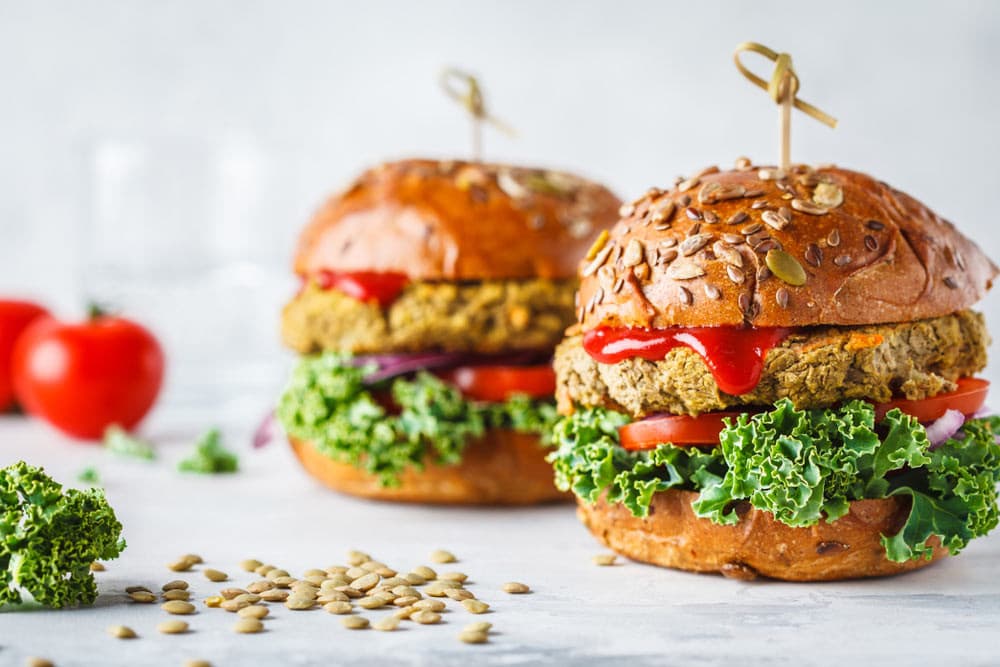
But there are serious problems related to not getting enough protein also. If you’re on a plant-based diet and have been deceived into thinking that you can eat whatever you want and still get enough protein without giving much attention to protein-rich foods, you should watch for these early warning signs:
- Ridges on nails6
- Fatigue
- Breaking hair
- Hair loss
- Swelling of hands and feet, legs or abdomen
- Mood problems like depression
- Hormonal problems such as irregular periods7
- Brain fog
The bottom line is, we can definitely meet our body’s protein requirements from plant foods but we must be sure to include protein-rich plant foods in our diet daily.
These statements have not been evaluated by the Food and Drug Administration or Health Canada. Our articles, videos and products are not intended to diagnose, treat, cure, or prevent any disease. If you are pregnant, nursing, taking medication, or have a medical condition, consult your physician before following any recommendations or using any product on our site. You assume sole responsibility for your personal health, and you must use your own discretion under doctor consultation to determine whether any product or recommendation on this site is suitable for your personal situation.

